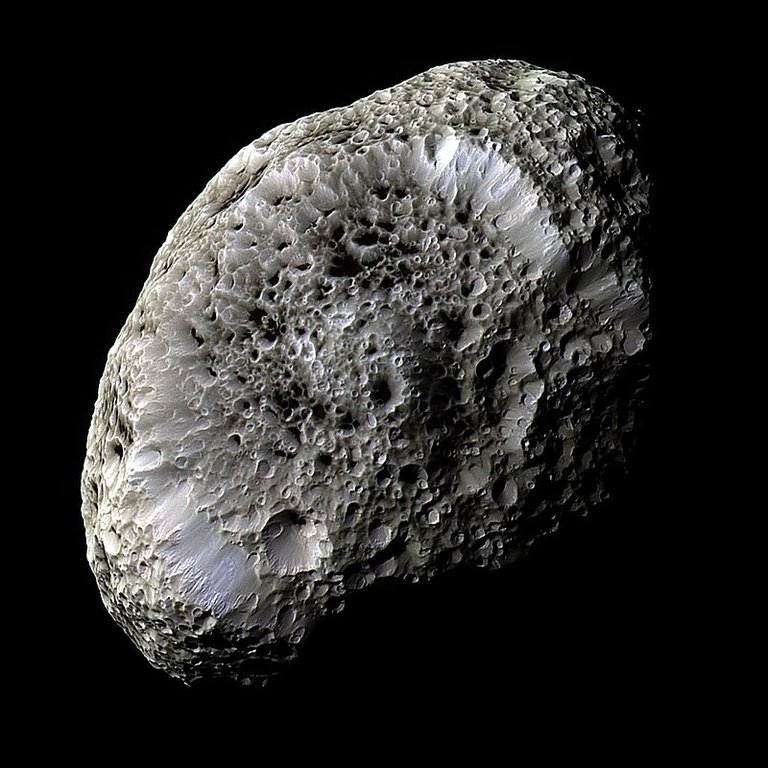The Hollow moon of the solar system, and it is not our Moon.

Konstanin Batygin has published together with astronomer Max Goldberg a very curious study on one of the strangest objects in the Solar System, Saturn's moon Hyperion. Have you heard about that conspiracy theory about the moon, our moon, which is hollow? In reality, on the moon there are enormous caverns and very long lava tunnels as a result of the volcanic activity that the moon had billions of years ago, sorry. But it is not really hollow, in fact, of all the satellites in the Solar System, it is the second densest, only surpassed, and only slightly, by the volcanic moon Io, a moon of Jupiter. But Hyperion is hollow, truly hollow .
Souce

It is a large body, the gravity acting on it should have exerted pressure to compress that mass, however, it is practically hollow, this is the research that these researchers published in December, because it also turns out that there is an enigma about Hyperion and is that astronomers, until now, had the suspicion that this moon was orbiting chaotically, so it could end up colliding with another moon.

Hyperion is like a gigantic sponge, which is also highlighted by its exterior appearance full of deep craters. The largest crater of Hyperion is approximately 120 kilometers in diameter and 10 kilometers deep, which for the dimensions of this moon is astonishing. It is as if the earth had a crater the size of the Pacific Ocean and about 420 kilometers deep.
The images without reference were created with AI
Thanks for your contribution to the STEMsocial community. Feel free to join us on discord to get to know the rest of us!
Please consider delegating to the @stemsocial account (85% of the curation rewards are returned).
You may also include @stemsocial as a beneficiary of the rewards of this post to get a stronger support.